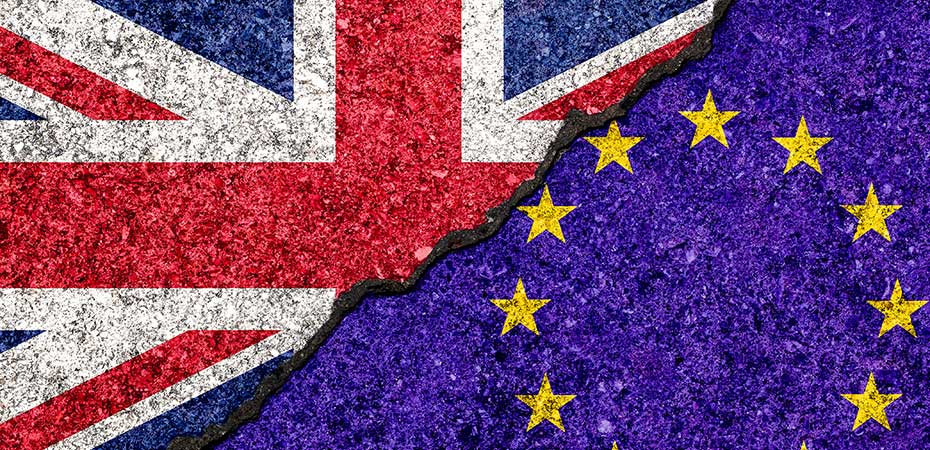After being held in contempt of Parliament for failing to make available the Attorney-General’s advice on the EU Withdrawal Agreement, the government has finally published it. That Legal Advice went online this morning. Here are some brief observations.
First, earlier in the week, when seeking to avoid the publication of the advice, the government published a 52 page document called the Legal Position on the EU Withdrawal Agreement. This was widely reported in the media as a ‘summary’ of the Attorney-General’s advice. Since the actual advice is only six pages long, the Legal Position was plainly no such thing – it was descriptive of what the Agreement says, but included nothing of the Attorney-General’s actual legal opinion.
Second, what explains the brevity of the real advice is that, unlike the Legal Position paper, it is concerned with a single issue – the legal effect of the Protocol on Ireland/Northern Ireland. This is a hugely important and controversial part of the Withdrawal Agreement, but is far from being the only matter of law arising in the 585 pages of the Agreement’s detailed legal text. Was the Attorney-General asked to give legal advice to the Cabinet on no other aspect of the draft Agreement before the Cabinet approved it? This is the surprising implication of the document that has now been published.
Third, the Attorney-General bluntly draws attention to the implications of the Ireland/Northern Ireland Protocol for the constitutional integrity of the United Kingdom. The Protocol takes effect once the transitional period has ended (currently intended for 31 December 2020). Under the Protocol, Northern Ireland will continue to remain in the EU single market while Great Britain will not. This means Northern Ireland being bound by over 300 EU legal instruments, and subject to the jurisdiction of the EU Commission and Court of Justice. In the stark words of the Attorney-General the effect of this is that: ‘for regulatory purposes, GB is essentially treated as a third country by NI for goods passing from GB into NI’ (emphasis in the original).
This is not exactly news to any lawyer who has looked at the Agreement, but its unpalatable implications for the Democratic Unionist Party are made plain. Since the contempt vote in the House of Commons demonstrates clearly the nature of the Parliamentary arithmetic – Theresa May will lose the vote on the Agreement so long as the Opposition Parties hold firm and the DUP deserts her, even if the Brexiteers of the European Research Group within her own party are somehow persuaded to remain onside – it is difficult for this reason alone to see how an agreement constructed on such a basis can hope to be approved.
Fourth, the so-called ‘temporary backstop’, which sustains these arrangements beyond the end of the transition period if no other agreement on the future UK-EU relations has been reached, could turn out to be indefinite. The Attorney-General puts it in these terms: ‘despite statements in the Protocol that it is not intended to be permanent…in international law the Protocol would endure indefinitely until a superseding agreement took its place, in whole or in part, as set out therein. Further, the Withdrawal Agreement cannot provide a legal means of compelling the EU to conclude such an agreement’ (emphasis in the original).
Again, this is unsurprising. It hardly needed the Attorney-General to say what any trainee lawyer would know, which is that obligations in the Agreement to negotiate in good faith for a replacement do not provide any assurance that the replacement will be agreed, and that in the meantime the backstop provisions will continue, potentially doing so for an indefinite period. But it is of course a politically powerful fact when this is so clearly stated by the government’s chief law officer.
Fifth, the backstop arrangements keep not only Northern Ireland but Great Britain in a customs union with the EU, and this comes with a series of regulatory obligations with which GB will need to comply – on environmental, social, labour, state aid and competition law – in order to maintain a kind of ‘level playing field’ with the EU27. There is no unilateral means by which the UK can extricate itself from these arrangements. In the words of the Attorney-General: ‘This remains the case even if parties are still negotiating many years later, and even if the parties believe that talks have clearly broken down and there is no prospect of a future relationship agreement‘ (emphasis in the original).
In short, the Withdrawal Agreement accomplishes the striking feat of committing the UK – both Northern Ireland and Great Britain (albeit in differing degrees) – to compliance with many aspects of EU law in a manner that is even more difficult to extract itself from than the current EU Treaties. Not everyone will be concerned about this, and some may indeed welcome it, but Brexiteers whose purpose is to obtain greater regulatory freedom for the UK will find it deeply unwelcome. Again, in that respect, it is likely to have an effect on the Parliamentary arithmetic.
In conclusion, there is nothing very surprising in the Attorney-General’s advice for anyone who has studied the Withdrawal Agreement closely. The importance of the advice is likely to lie more in its clarity of the expression and the limited room it allows the government to explain away some of the real legal challenges of the Withdrawal Agreement. To that extent, its disclosure is a politically important moment. A week is a long time in politics. But, viewed from today’s perspective, it makes a Parliamentary vote in favour of the Withdrawal Agreement less likely.
